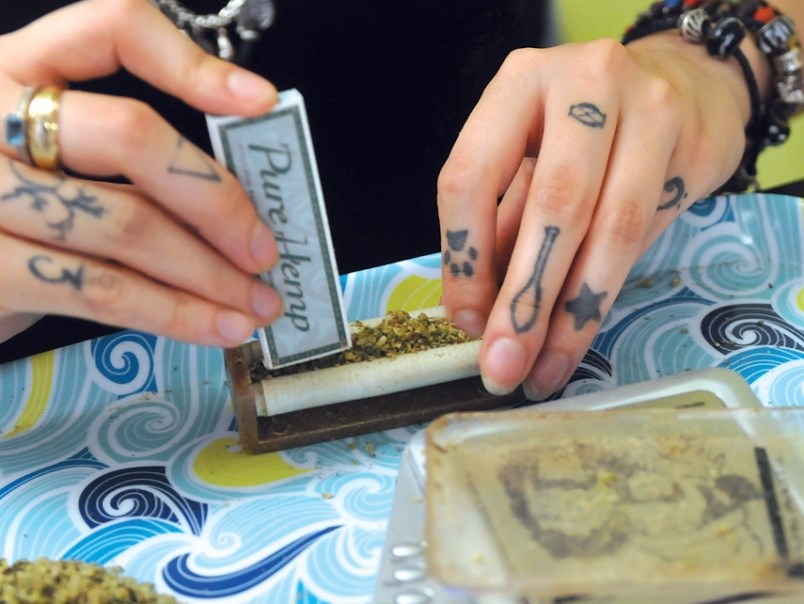Pot shops that have opened in North Vancouver are hoping to stay when the province creates regulations about how marijuana should be sold when it’s legalized next year.
“Obviously we’re hoping we’ll still play a part in the whole thing. It sounds like there’s room,” said Michael Wuest, owner of the Weeds store at 991 Marine Dr. Wuest’s was the first storefront to open up on the North Shore, in April 2015.
Six storefront “dispensaries” currently operate in North Vancouver, five of those within city boundaries.
Selling marijuana from any retail storefront is still illegal, but with legalization on the horizon, both RCMP and some municipal authorities have taken a “wait and see” approach to enforcement.
On Monday, solicitor general Mike Farnworth announced the province is starting a one-month consultation process to tap both the public and local politicians about what they’d like to see in provincial laws.
Farnworth said while some rules – such as those governing the supply of marijuana – will be set by Ottawa, others will be up to the province.
Farnworth hinted many of those decisions may get passed down to municipalities to regulate.
Neil Boyd, a Simon Fraser professor of criminology, said it’s unlikely the province will force all existing dispensaries to close. More likely is a model where some private retail stores exist alongside government outlets. “There’s been a tolerance for these shops so it’s possible they will continue,” he said.
But Boyd said he also expects to see a lot more regulation around where the pot shops get their supply and standardization for potency. “That doesn’t happen very much right now,” he said.
District of North Vancouver Mayor Richard Walton said municipalities would welcome clarity from senior governments about what will be allowed when marijuana is legalized. Then local governments can craft bylaws about where pot shops can operate. “It needs to be in areas that are appropriate,” he said – away from schools and areas where neighbours would be bothered, for instance.
Walton said he’d also like to see regulations be similar – or at least complementary – in both the city and district of North Vancouver, to avoid confusion. Currently the two neighbouring municipalities have taken different approaches to pot shops.
In the city, bylaw officers have handed out repeated tickets to storefronts for operating without a business licence, which the municipal council refused to issue. But the city has stopped short of pursuing the shops in court. But when one shop that opened in the district prompted complaints from neighbouring commercial tenants, the district went to court and got an injunction ordering the business shuttered.
Dr. Mark Lysyhshn, medical health officer for the North Shore, said health authorities support legalization of marijuana and other psychoactive substances. “A lot of the harms come from the fact that they are unregulated,” he said.
Health authorities favour a government-run retail system as “the least risky way” to sell marijuana, he said, but don’t want alcohol and pot sold in the same place. Lysyshyn said health officials also want the supply of pot to come from licensed producers.
Health concerns around marijuana use have centred on regular heavy use among young adults because “it can affect their lifelong brain development and even their IQ,” said Lysyshyn. Doctors are also cautious about edible products, he said, because it’s easier for people to consume a higher-than-anticipated dose of TCH in those and for people who shouldn’t consume marijuana – like children – getting poisoned after accidentally eating edible products.
Anyone from the public can weigh in on the province’s approach to marijuana legalization until Nov. 1 at engage.gov.bc.ca/BCCannabisregulation/



